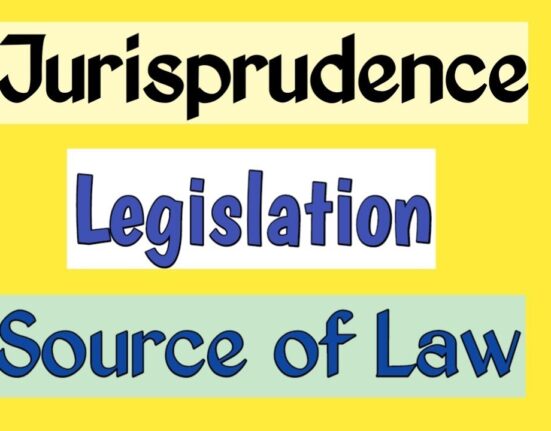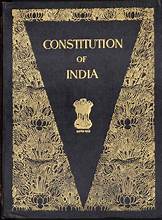H. Aishwarya, a 4th-year B.A.LL.B.(Hons.) student from PES University, Bengaluru has written this Article on “Custom as a source of International law”.
Introduction
In the intricate realm of jurisprudence, custom stands as one of the oldest and most intriguing sources of law. Customary law, often referred to as “custom,” is a unique and diverse form of legal tradition that derives its authority from the practices, beliefs, and traditions of a specific community or society. This comprehensive exploration of custom as a source of law will delve into its historical development, its role in contemporary legal systems, the complexities of its operation, its advantages, its criticisms, and the cultural, social, and legal dynamics that govern its application in the pursuit of justice and legal consistency.
Historical Development of Custom as a Source of International Law
The evolution of custom as a source of law is deeply intertwined with the historical development of human societies and their legal systems.
Ancient Origins
Customary law finds its origins in the earliest human societies, where rules and norms governing behavior were established through communal practices and traditions. These customs were often oral and evolved over time, serving as a means to resolve disputes and maintain social order.
Ancient Legal Codes
In ancient civilizations, the custom began to take a more formalized shape with the codification of customary practices into written legal codes. Notable examples include the Code of Hammurabi in ancient Mesopotamia and the Twelve Tables in ancient Rome. These legal codes drew heavily from prevailing customs and served as early manifestations of custom as a source of law.
Indigenous and Tribal Customary Law
Throughout history, many indigenous and tribal communities have relied on custom as the primary source of law. These customs, often rooted in traditional beliefs and practices, continue to shape legal systems in various parts of the world.
Custom in Modern Legal Systems
In contemporary legal systems, custom still plays a significant role, particularly in regions where customary law has been preserved or codified.
Common Law Systems
In common law systems, custom may be invoked as a source of law, but it often operates in conjunction with precedent and statutory law. Courts in common law jurisdictions may consider longstanding customs when interpreting legal principles or filling gaps in the law.
Customary International Law
Customary international law is a well-recognized source of international law, alongside treaties and conventions. The Customary international law is derived from the consistent and general practice of states, coupled with the belief that such practices are legally required (opinio juris). Customary international law can influence decisions made by international courts and tribunals.
Indigenous and Tribal Customary Law
In many countries, indigenous and tribal customary law continues to be recognized and respected within the broader legal framework. Governments and legal systems may establish mechanisms to incorporate customary practices into formal legal processes, acknowledging the importance of preserving indigenous cultures and traditions.
How Custom Operates
To understand the functioning of custom as a source of law, it is essential to examine the mechanisms through which it operates.
Consistency and Generality
For a practice or norm to acquire the status of customary law, it must exhibit two key elements: consistency and generality. Consistency implies that the practice has been consistently followed over time, while generality suggests that it is widely accepted within the community or society.
Opinio Juris
A crucial component of customary law is opinio juris, which means the belief that the practice is legally required rather than merely a matter of tradition or convenience. This belief is often inferred from the consistent and general practice of the community or society.
Custom and Legislation
Custom and legislation can coexist in legal systems. While statutory law is enacted through formal legislative processes, customary law derives from longstanding practices and beliefs. Customs may be invoked to inform legal interpretations or fill gaps in legislation, especially when it aligns with broader societal values and norms.
The Advantages of Custom as a Source of International Law
Custom as a source of law offers several distinct advantages within legal systems:
Reflecting Cultural Diversity
Custom allows legal systems to recognize and respect the cultural diversity of communities and societies. It acknowledges that not all legal norms can or should be imposed universally and allows for the preservation of unique traditions and practices.
Adaptability
Customary law has the flexibility to evolve organically over time, adapting to changing societal values and circumstances. This adaptability can make it a more responsive source of law than formal legislation.
Community Engagement
Custom involves community participation in the creation and interpretation of legal norms. This engagement fosters a sense of ownership and accountability within communities, as they actively shape their own legal framework.
Restorative Justice
Customary dispute resolution mechanisms often emphasize restorative justice over punitive measures, focusing on reconciliation and healing rather than punishment. This approach aligns with contemporary efforts to explore alternative dispute-resolution methods.
Critiques and Limitations of Custom as a Source of International Law
While custom has its advantages, it is not without criticisms and limitations:
Potential for Inequity
Customary practices can sometimes perpetuate discriminatory or inequitable norms, particularly in patriarchal or authoritarian societies. Customs may be used to justify practices that infringe upon human rights, especially those of marginalized groups.
Conflict with Human Rights
Customary practices may clash with internationally recognized human rights standards. Balancing the preservation of custom with the protection of fundamental human rights can be a complex and contentious issue.
Lack of Formal Codification
Customary law is often not formally codified or written down, which can lead to ambiguity and uncertainty in its application. This lack of codification may make it difficult to ascertain the exact contours of custom.
Clash with State Law
Customary practices can sometimes conflict with state law, leading to legal disputes and uncertainty. Resolving such conflicts requires careful consideration of both legal systems and their respective authorities.
The Intersection of Custom and State Law
In many legal systems, the relationship between custom and state law is dynamic and evolving.
Recognition and Codification
Some countries formally recognize and codify customary practices within their legal systems. This recognition may involve the incorporation of customary practices into state laws or the establishment of parallel legal systems that govern specific communities.
Custom as a Supplement
In other cases, custom operates as a supplementary source of law, filling gaps or providing guidance in situations not explicitly covered by state legislation. Courts and legal authorities may reference custom when interpreting legal principles or adjudicating disputes.
Striking a Balance
Legal systems often seek to strike a balance between the preservation of custom and the protection of human rights and fundamental legal principles. This balance requires ongoing dialogue and negotiation between state authorities, communities, and legal experts.
Conclusion
Custom as a source of law stands as a testament to the rich tapestry of legal traditions that have evolved over millennia. It reflects the dynamic relationship between law and society, acknowledging the importance of cultural diversity, community engagement, and adaptability in shaping legal norms. However, custom also presents challenges related to equity, human rights, and the clash with state law.
As legal systems continue to evolve, the intersection of custom and state law will remain a subject of debate and exploration. The quest for justice and legal consistency demands careful consideration of the intricate dynamics that govern the application of custom as a source of law, ensuring that it serves as a means to preserve cultural heritage while upholding the principles of fairness, equality, and human rights.
Also Read: Understanding and Application of The Act of God







Leave feedback about this